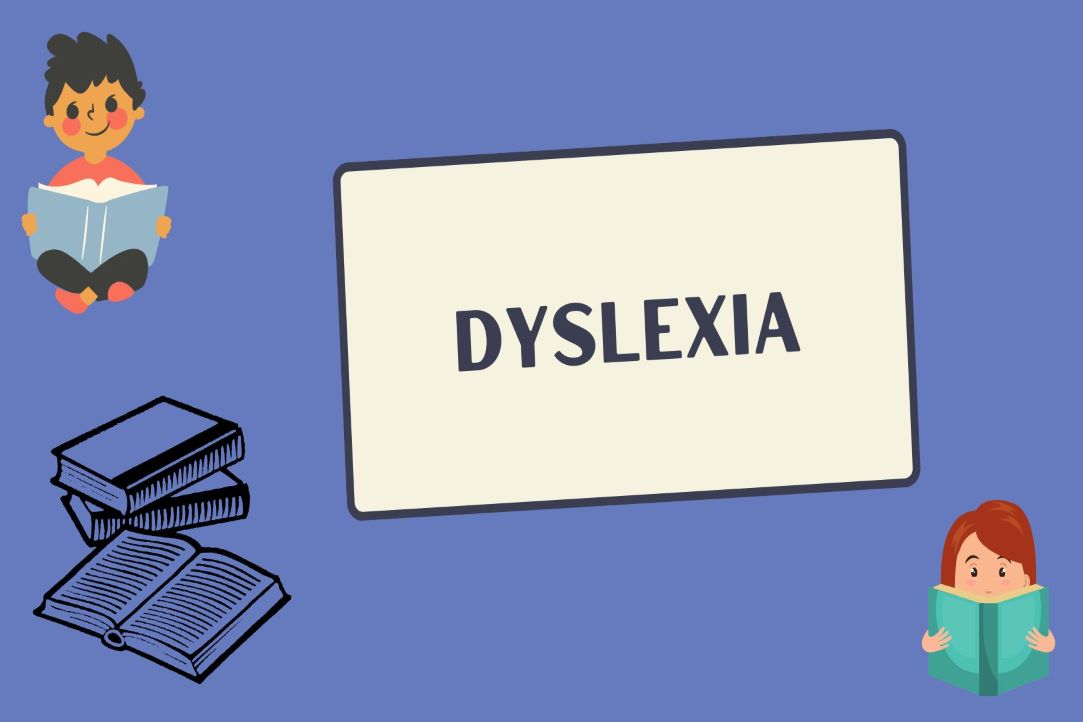Dyslexia: Is it actually hereditary?
Dyslexia can seriously affect a person's life. But alongside this, it can also be a blessing in disguise and act as an advantage. So, what actually hides behind the word “dyslexia”?

Dyslexia is a disorder characterized by difficulty reading without any intelligence-related problems. People with dyslexia can have difficulties in spelling words, reading quickly, writing words, etc.
Signs that a child has dyslexia
To this day many people think that if a child has problems with reading, they are just lazy or not smart enough but this is often not the case. Dyslexia is very common and it is important to recognise signs that a child has dyslexia and needs proper help.
Sings for preschoolers:
- telling stories or events without logical order;
- mispronouncing words and changing letters in familiar words;
- hardly remembering specific sequences (for example, alphabet).
Signs for students of elementary / primary school:
- confusing letters that look or sound similar;
- having issues with spelling words;
- skipping or confusing short words (for example, articles and prepositions);
- having problems with quickly recognising common familiar words;
- avoiding reading;
- trying to guess words rather than actually reading them.
Signs during teenage years and adulthood:
- reading slower than their peers;
- having problems with understanding idioms or puns;
- finding little joy in reading.
How to help
First of all, assessment is needed.
Typical assessment process consists of tests that deal with:
- phonological awareness;
- reading;
- spelling (orthographic competence);
- morphology;
- naming.
After this, specialists can choose what methods should be used and what is a way to move forward.
What goes on in the brain of a person with dyslexia
Reading is a skill that humans developed not that long ago compared to language. Language is something that all cultures have in one form or another. That is why reading is something that people can often struggle with, even those who have typical development, let alone those whose brains have differences.
There are two processes that work when a word is retrieved from the mental lexicon in the brain: orthographic and phonological processes. The orthographic input comes first, then the phonological process takes place, and the orthographic representation is matched with the corresponding phonological representation. Dyslexic people have problems with both of these processes as in dyslexia the brain processes graphic symbols and the sounds of words differently.
As for the neuroscience of dyslexia, there is actually less activation in the areas concerning reading in the brains of people who have dyslexia and difficulties with reading. Additionally, dyslexic people have less gray and white matter in their brains (these matters are associated with reading skill). The white matter microstructure and/or some macrostructural properties of major tracts in the brain are important for reading and spelling abilities and this is exactly why dyslexic people may have problems.
What is interesting is that when there is educational intervention for a dyslexic child, there are not only successful outcomes, but also there are advancements in the brain, in particular, in the area of neural systems that underlie skilled reading.
The importance of genetics when it comes to dyslexia
There are genes associated with dyslexia, so dyslexia can be hereditary. If a child has dyslexia, there is a high chance that at least one of their parents also has it (about half of parents of kids with dyslexia also have dyslexia). There are also specific genes associated with reading difficulties.
There are many successful dyslexic people, and one aspiring example is Maggie-Aderin Pockock[1]. As a dyslexic kid at school, she struggled quite a bit. Her reading and writing abilities were not good and she had little confidence in herself. But she became interested in science and through this started reading passionately about topics that interested her - and soon enough became a top student of the class. She has got her PhD in mechanical engineering and works as a space scientist now.
The important thing to take away from this is that people with dyslexia are in no way lesser than others without it. To this day, a misconception exists that dyslexia is something bad which in turn makes people who have it feel confusion and shame. People with dyslexia might struggle with reading or spelling but many of them are good at arts, architecture, business and other ventures. It is crucial to educate the public on what dyslexia is and how it can be an awesome thing, so that every kid with dyslexia could have a bright future where their struggles are eased and abilities and talents are recognized.
[1] https://en.wikipedia.org/wiki/Maggie_Aderin-Pocock
Elizaveta Vilenchik
References
- Acha, J., Carreiras, M. (2014). Exploring the mental lexicon: A methodological approach to understanding how printed words are represented in our minds. Mental Lexicon, 9, 196–231.
- Deutsch, G. K., Dougherty, R. F., Bammer, R., Siok, W. T., Gabrieli, J. D., & Wandell, B. (2005). Children's reading performance is correlated with white matter structure measured by diffusion tensor imaging. Cortex; a journal devoted to the study of the nervous system and behavior, 41(3), 354–363. https://doi.org/10.1016/s0010-9452(08)70272-7
- Scarborough, H. S. (2001). Connecting early language and literacy to later reading (dis)abilities: Evidence, theory, and practice. In S. Neuman & D. Dickinson (Eds.), Handbook for research in early literacy. New York: Guilford Press.
- Shaywitz, B. A., Shaywitz, S. E., Blachman, B. A., Pugh, K. R., Fulbright, R. K., Skudlarski, P., Mencl, W. E., Constable, R. T., Holahan, J. M., Marchione, K. E., Fletcher, J. M., Lyon, G. R., & Gore, J. C. (2004). Development of left occipitotemporal systems for skilled reading in children after a phonologically- based intervention. Biological psychiatry, 55(9), 926–933. https://doi.org/10.1016/j.biopsych.2003.12.019
- Powers, N., Eicher, J., Butter, F., Kong, Y., Miller, L., Ring, S., Mann, M., Gruen, J. (2013). Alleles of a Polymorphic ETV6 Binding Site in DCDC2 Confer Risk of Reading and Language Impairment. The American Journal of Human Genetics, 93(1), 19–28, ISSN 0002-9297, https://doi.org/10.1016/j.ajhg.2013.05.008.
- Reading Rockets. Online resource // https://www.readingrockets.org/article/dyslexia-and-brain-what-does-current-research-tell-us
- Understood. Online resource // https://www.understood.org/articles/en/checklist-signs-of-dyslexia-at-different-ages
- Dyslexia, Yale. Online resource // https://dyslexia.yale.edu/story/maggie-aderin-pocock-ph-d/
Other Topics


